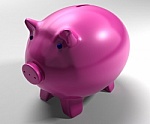A “big” purchase is defined in different ways depending on who you ask. To some, “big” means anything over $50 that’s not a necessity. For others, “big” means upwards of $1,000 or more. Whatever terms you think of a “large” purchase in, ask yourself these five questions before spending your hard earned money.
1. Can I Pay for the Item in Cash?

If you’re able to pay for whatever it is you’re buying in cold, hard cash without dipping into your emergency savings account, chances are you’re not making a huge mistake. Keep in mind that paying in cash doesn’t mean using your rent money to make a purchase – it means having the cash for the purchase without screwing up your monthly budget. If you don’t have enough cash, flex your self-control and save up until you can afford the item. Whatever you do, don’t put a huge purchase on your credit card if you can’t really afford it.
2. Is this Item a necessity? Do I need it?
Determining whether or not you need something will help you to prioritize it in your budget. Make sure you’re being honest about the idea of “needing” something, too. Do you need a flat screen TV because football season is fast approaching? Probably not. Do you need a new car because yours has become a money pit? Probably.
There’s a second part to this question, too: Do you need the item right now? Let’s say your washing machine breaks – that’s something that you’re going to want to replace at some point. However, you can take a few weeks to save for a new washer and head to the laundromat in the meantime. This is the best option if you don’t have extra money readily available.
If whatever it is you want to buy isn’t a true necessity, that doesn’t mean you shouldn’t ever buy it. It just means that you should put necessities first and make sure to only pay for luxury items with extra cash.
3. Should I Buy the Higher Quality Product?
It’s common to try to cut corners and get cheaper items when possible, especially if you’re on a tight budget or living paycheck-to-paycheck. You have to also determine the value of the item you’re buying, though. For example, you can spend less than $100 for a new vacuum, but if you only get two years out of it, the vacuum for $300 that will last for at least five years is a better investment. Usually, when it comes to expensive items, cheap prices also mean cheap quality. The best way to find out how an item will hold up is to read user reviews online.
4. Will the Item be going on Sale Soon?
Certain popular, big ticket items have annual sale cycles. For example, TVs go on sale around Christmas time; grills are discounted at the end of August; and lawnmowers are cheapest during October. If you’re gearing up to make a big purchase, find out when the item’s sale season is. It could just be a matter of a few weeks that you’ll have to wait to save a few hundred dollars.
5. Did I do My Rresearch?
If you’re going to be spending a lot of money on anything, you should make sure you’re getting exactly what you’re paying for. Don’t ever buy a digital camera, home entertainment system or brand new car without reading up on the item beforehand. Check out reviews, common problems with the item, features and where you can find the best value. You should also find out warranty information, return policies and resale prices.
Rachel Eagan is a professional blogger that shares financial advice and information to consumers. She writes for TitleMax, which provides auto title loans a bad credit check title loans.

